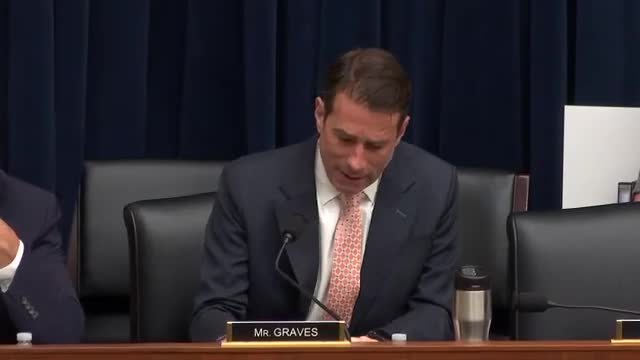Lawmakers push for urgent reforms in disaster recovery programs
September 25, 2024 | Transportation and Infrastructure: House Committee, Standing Committees - House & Senate, Congressional Hearings Compilation
This article was created by AI summarizing key points discussed. AI makes mistakes, so for full details and context, please refer to the video of the full meeting. Please report any errors so we can fix them. Report an error »

During a recent government meeting, significant concerns were raised regarding the effectiveness of the Department of Housing and Urban Development's (HUD) disaster recovery programs. Congressman Rausser, drawing from personal experiences with disasters, emphasized the inadequacies of the current HUD disaster program, particularly in the aftermath of a catastrophic flood event in 2016. He highlighted that out of $1.7 billion allocated through HUD's Community Development Block Grant Disaster Recovery Program, only $700 million has been disbursed to homeowners after eight years, raising questions about the program's efficiency and responsiveness.
Rausser criticized the existing framework, stating that the HUD program is \"disastrous\" and that it fails to provide timely assistance to disaster victims. He referenced a Government Accountability Office (GAO) report that indicated the Economic Development Administration (EDA) can achieve recovery outcomes in 18 months, a stark contrast to the six years it takes HUD. This disparity, he argued, underscores the need for a more coordinated approach to disaster recovery.
The congressman also addressed opposition to proposed legislation aimed at reforming disaster recovery efforts, asserting that those opposing the bill lack firsthand experience with the challenges faced by disaster victims. He urged his colleagues to support the legislation, framing it as a necessary step toward creating a more efficient and effective recovery process.
The meeting concluded with a call for support of the proposed amendments to HR 9750, aimed at improving disaster recovery mechanisms, reflecting a broader commitment to ensuring timely assistance for those affected by disasters.
Rausser criticized the existing framework, stating that the HUD program is \"disastrous\" and that it fails to provide timely assistance to disaster victims. He referenced a Government Accountability Office (GAO) report that indicated the Economic Development Administration (EDA) can achieve recovery outcomes in 18 months, a stark contrast to the six years it takes HUD. This disparity, he argued, underscores the need for a more coordinated approach to disaster recovery.
The congressman also addressed opposition to proposed legislation aimed at reforming disaster recovery efforts, asserting that those opposing the bill lack firsthand experience with the challenges faced by disaster victims. He urged his colleagues to support the legislation, framing it as a necessary step toward creating a more efficient and effective recovery process.
The meeting concluded with a call for support of the proposed amendments to HR 9750, aimed at improving disaster recovery mechanisms, reflecting a broader commitment to ensuring timely assistance for those affected by disasters.
View full meeting
This article is based on a recent meeting—watch the full video and explore the complete transcript for deeper insights into the discussion.
View full meeting